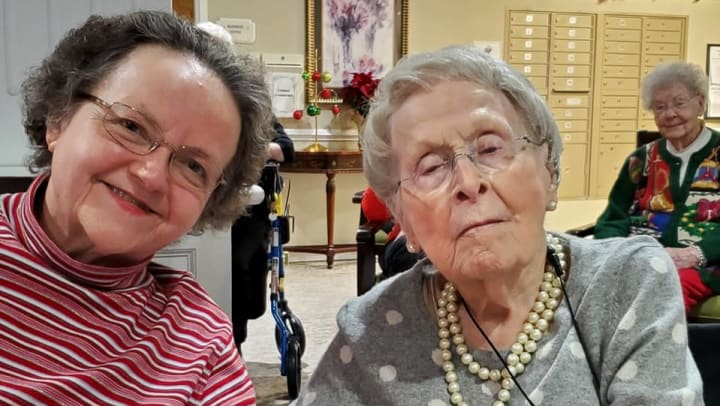As our loved ones grow older, the physical and mental benefits of companionship become more important than ever. It isn’t a surprise that isolation and loneliness can lead to negative effects on one's health and that the positive impacts of staying social for seniors is significant. Companionship for seniors prevents cognitive decline and provides helpful support during their retirement years so they do not feel alone. The dawning of a new year is a busy time for everyone between new resolutions, designating new priorities, and all of the fun activities that tend to keep us preoccupied. With all of these exciting distractions, it is important to remember your senior loved ones and provide them the companionship they need to stay mentally and socially engaged. Here are some cognitive and emotional benefits of senior companionship that will make your loved one live a happier life during their golden years!
Enjoy a longer, healthier life
Being around family and friends helps seniors feel connected as they continue to age and prevents the negative physical and emotional effects of social isolation.
The National Academies of Sciences, Engineering, and Medicine (NASEM) points out that “more than one-third of adults aged 45 and older feel lonely, and nearly one-fourth of adults aged 65 and older are considered to be socially isolated.” According to the Centers for Disease Control and Prevention, “social isolation was associated with about 50% increased risk of dementia and other serious medical conditions”. Senior living communities like Harmony Senior Services, allow senior residents to have the positive social aspect with associates, fellow residents, and visiting family and friends. Having that daily companionship in several different forms can prolong and enhance an individual's aging timeline.
Creating weekly routines
Routine companionship helps seniors consistently engage in social activities in their environment. Maintaining routines can create healthy patterns with events and responsibilities for seniors to plan and look forward to. Routines are known to change during the transition into a new year and can be confusing for seniors. It is important to establish new routines and activities that are focused on their interests! The more events a senior has on their social calendar with other residents or family, the more they will feel connected to their community. At Harmony Senior Services, senior residents have a full calendar of activities to keep them busy and build relationships with other residents.
Staying safe in your space
As we age, the risk of falls, missed medications, lack of proper diet, and depression increase. More accidents and emergencies will start to arise and it is important for seniors to be safe in their home. In a senior living community, the benefits of companionship and daily support provide solutions to the risks of living alone and potentially needing additional assistance when scheduled in-home care may not be available. With Harmony Senior Services’ continuum of care, seniors are provided with care options that cater to their changing needs.
Sense of belonging
Senior living communities provide a sense of belonging and community that often get lost when seniors become isolated in their home. Harmony Senior Services is designed to connect residents with social interactions and a variety of group activities throughout the day. There are plenty of shared social spaces such as movie theaters, exercise areas, and activity rooms for friendships to grow. Residents can make new friends at a planned community event, during mealtime in the dining room, or outside on a relaxing walk. Seniors who live in assisted living communities do not have to feel isolated or alone!
There are plenty of opportunities for companionship at Harmony Senior Services. If your senior loved one is feeling isolated and needs help in this next transition of life, Harmony is here for you. Start the new year right with Harmony Senior Services and contact us today to learn more.
Sources:
https://www.cdc.gov/aging/publications/features/lonely-older-adults.html


